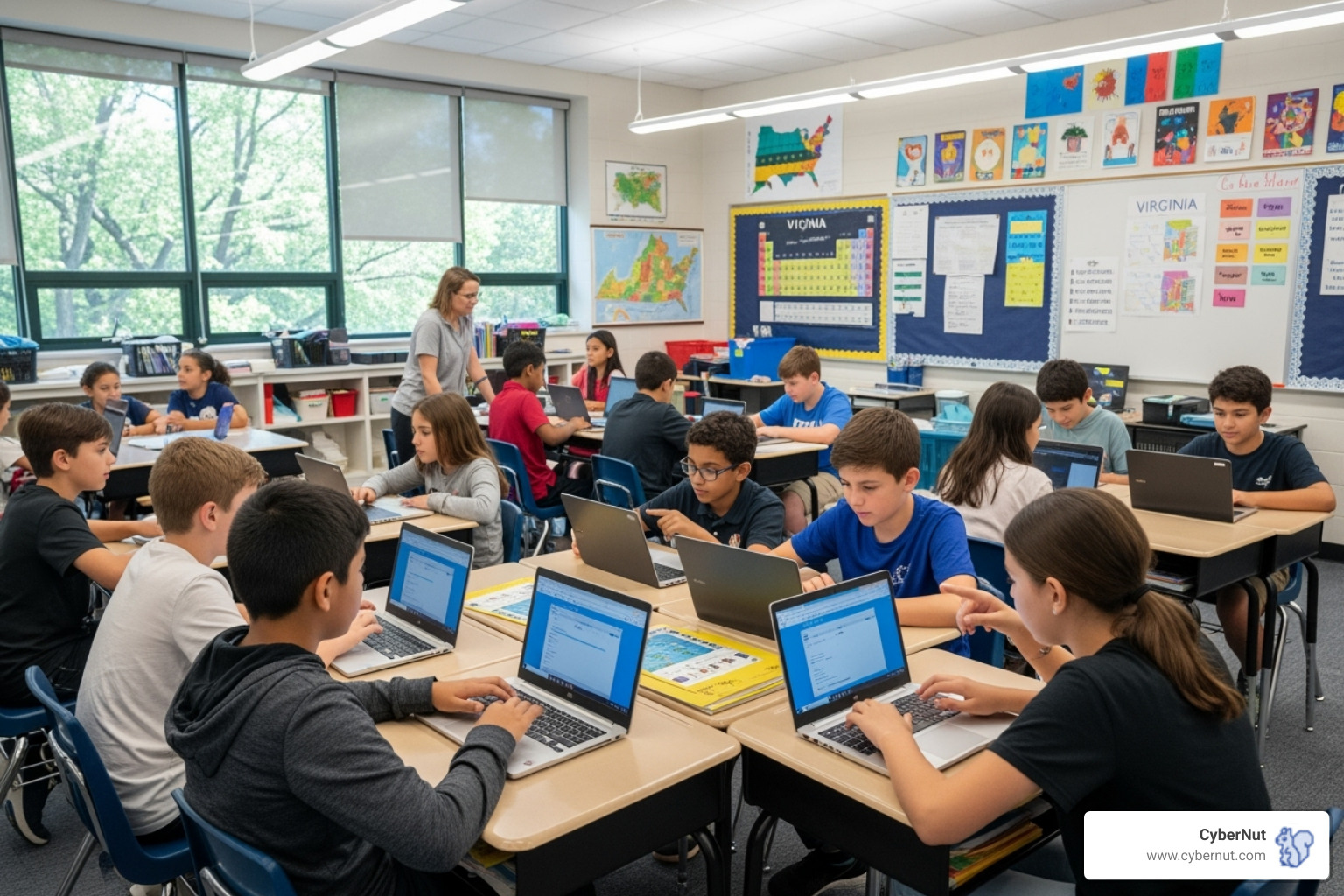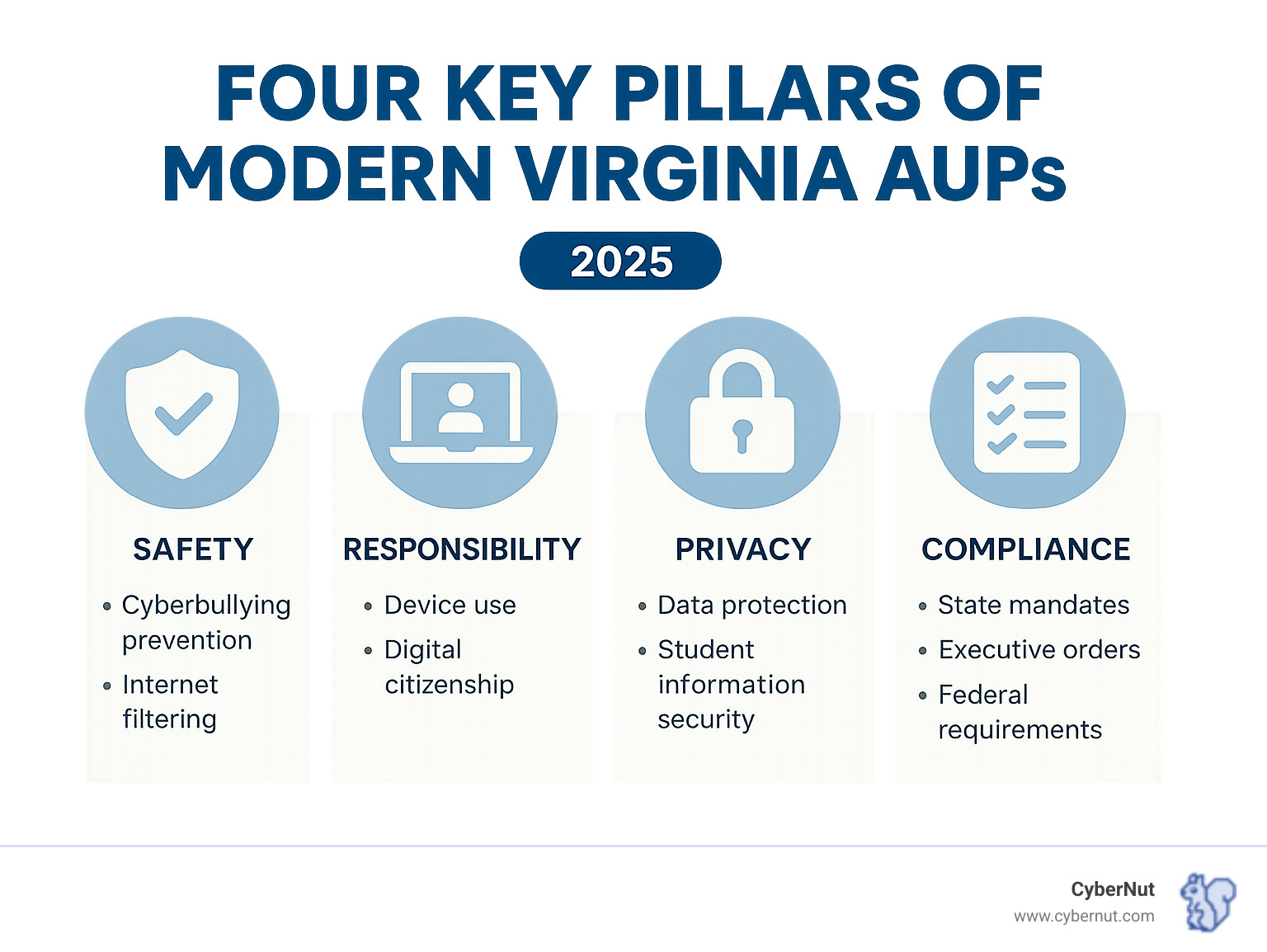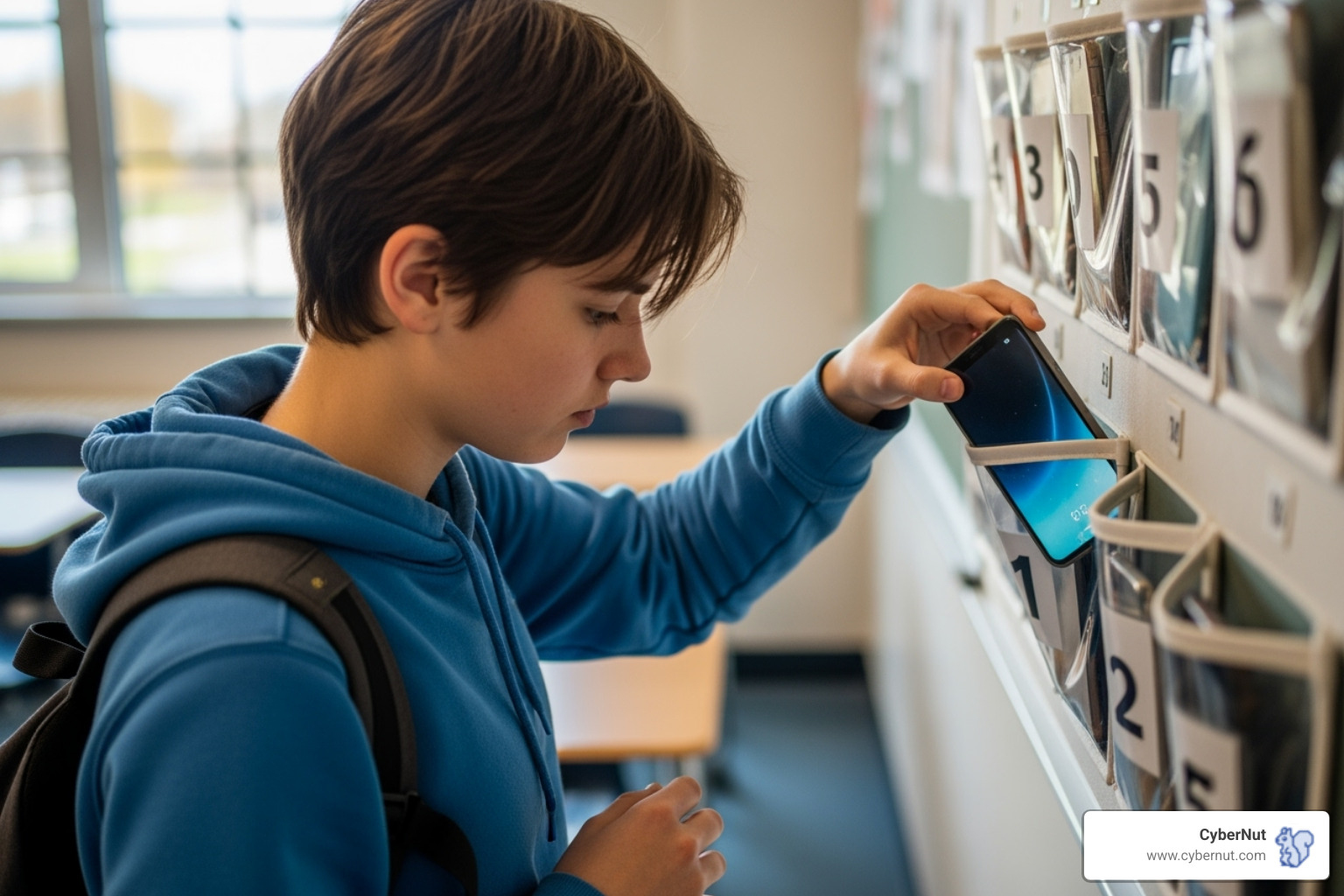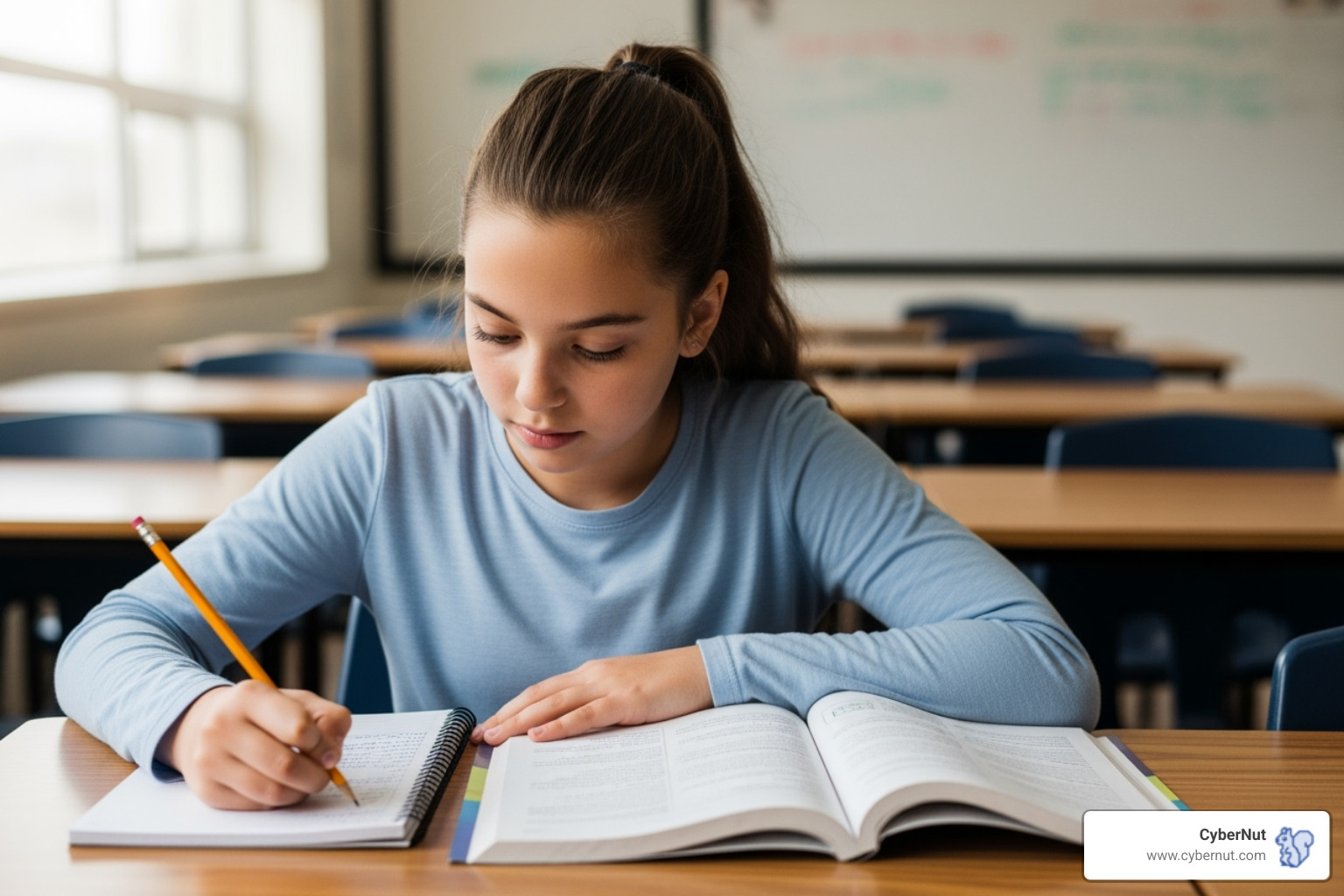
Oliver Page
Case study
September 1, 2025

Acceptable Use Policies in Virginia Schools: What You Need to Know in 2025 is a critical topic as Virginia implements sweeping changes to how students interact with technology. From cell phone bans to social media restrictions, the Commonwealth is reshaping digital education.
Quick Overview: Key Changes for 2025
As one Virginia IT director noted: "We've gone from managing basic internet access to navigating cell phone policies, AI restrictions, and social media laws all at once."
The landscape has shifted dramatically. Where schools once focused on internet filtering, 2025 brings a complex web of state mandates and emerging technology challenges. For example, Richmond Public Schools implemented a cell phone-free environment on January 1, 2025, with Prince William County following for the 2025-26 school year.
These changes are fundamental shifts in how Virginia approaches student safety, digital citizenship, and educational technology. For K-12 IT directors, understanding these requirements is essential for compliance and student protection.

An Acceptable Use Policy (AUP) is a written agreement signed by students, parents, and teachers that outlines the terms for using technology in school. AUPs are vital for promoting educational excellence by facilitating resource sharing and innovation while ensuring a safe, respectful, and legally compliant digital space. Virginia law mandates that schools establish these guidelines to protect students and maintain an effective learning environment.
According to the Code of Virginia § 22.1-70.2, each division's AUP must include a robust Internet safety component. Key required components include:
For more details, explore the Legislation Virginia K-12 educators and students use instructional resources from the Code of Virginia.
Internet filtering is a legal mandate in Virginia schools. Beyond state law, the federal Children's Internet Protection Act (CIPA) applies to schools and libraries receiving E-rate discounts for Internet access. CIPA compliance requires:
These filtering requirements are crucial for safeguarding students. For more on federal mandates, refer to the CIPA regulations.
2025 marks a turning point for technology in Virginia schools, with Governor Glenn Youngkin taking decisive action through executive orders and new legislation addressing social media. These are not minor tweaks but fundamental shifts designed to create focused learning environments and address student well-being.

Executive Order 33 launched the cell phone revolution, while Executive Order 46 tackled emerging AI threats. The ripple effects are already visible, with districts like Richmond Public Schools and Prince William County Schools implementing cell phone-free policies. These changes address emerging technology threats, moving beyond basic internet access to managing cell phone storage, social media time limits, and AI application restrictions.
Governor Youngkin's Executive Order 33, issued July 9, 2024, aims to remove distractions and help students focus. The "bell-to-bell" standard requires that from the first bell until dismissal, personal electronic devices must be turned off and "stored"—meaning out of sight and reach in a backpack, locker, or designated area.
Richmond Public Schools' policy, effective January 1, 2025, includes cell phones, smartwatches, and other non-RPS-issued devices. Prince William County Schools will implement its "Cell Phone-Free Education" policy for the 2025-26 school year, also restricting personal laptops and iPads that cannot be monitored by school IT.
These implementation timelines show how seriously districts are taking the mandate. The policies represent a significant shift from "acceptable use" to "no use" for personal communication devices during instructional time. The full details are in Governor Youngkin's Executive Order 33. This shift also highlights the challenge of unvetted technology, or Shadow AI: How Unvetted Tools Enter Classrooms and Bypass School Policy.
Virginia is also breaking new ground with social media and AI regulations. A bill passed in March 2025 amends the Virginia Consumer Data Protection Act (VCDPA) to impose a 1-hour daily limit for minors under 16 on social media platforms, effective January 1, 2026, unless parents consent to more time. While schools cannot monitor home usage, this law reinforces digital citizenship lessons.
The DeepSeek AI ban at the University of Virginia, in response to Governor Youngkin's Executive Order 46, sets a precedent for K-12 schools. On February 17, 2025, UVA prohibited the AI application on university devices and networks. This highlights the need for adapting AUPs for AI, evaluating tools for educational value versus risks to data privacy and academic integrity.
This proactive stance is critical when considering threats like Synthetic Students - Deepfake Principals: The Emerging Threat of Identity Fraud in Schools. AUPs must now be living policies that evolve with each new technological development.
Effective Acceptable Use Policies in Virginia Schools: What You Need to Know in 2025 depend on daily implementation, with clear roles, fair consequences, and thoughtful accommodations. When everyone in the school community participates, it creates a protective network for students.

Digital safety is a shared responsibility:
Understanding the rules for different devices is crucial under the new policies.
Consequences for violations typically follow a progressive discipline model. A first offense may result in a warning and temporary confiscation. Repeated offenses lead to parent contact and more serious disciplinary action. Severe violations like cyberbullying or hacking can result in immediate, serious consequences, including law enforcement involvement.
Special accommodations are available for students with legitimate, documented needs. A student with an IEP or 504 Plan may require device access for medical monitoring or communication support. These accommodations require official documentation and are established by working with the school's support team to balance individual needs with the overall learning environment.
Virginia's 2025 AUP changes are about creating a healthier, safer, and more effective learning environment. These policies address student well-being and the critical need to protect student data.

The new cell phone and social media policies respond to research on how digital distractions affect learning and mental health. Studies show a clear link between smartphone use and lower academic performance. When a student is distracted by a notification, it can take up to 10 minutes to fully re-engage with learning.
The mental health connections are also concerning. The American Psychological Association's May 2023 health advisory on social media highlighted links between excessive use and increased anxiety and depression in teens. A Pew Research Center survey found that nearly half of teens reported that social media disrupts their sleep.
Virginia's approach aims to create breathing room from these digital pressures. By limiting device use during school hours, schools foster more in-person social interactions and reduce cyberbullying. Teachers report that students are more engaged and focused. For more details, review the APA health advisory on social media.
Acceptable Use Policies in Virginia Schools: What You Need to Know in 2025 include crucial data privacy and security components. Communications on school networks are generally non-confidential and may be monitored by school officials to ensure safety and AUP compliance.
Security measures like firewalls and antivirus software are in place to protect school networks. AUPs also include detailed breach response plans with clear notification protocols. The Virginia Consumer Data Protection Act (VCDPA) further strengthens data privacy, influencing how schools handle student information and vet third-party service providers.
Unfortunately, student data has become a prime target for cybercriminals. K-12 schools face increasing cyberattacks, making robust AUPs and strong cybersecurity practices more critical than ever. As detailed in a recent analysis, Student Data Becomes Prime Target in K-12 Cyberattacks: Districts Rush to Tighten Access and Vendor Controls, districts are working to tighten controls and protect this sensitive information.
Here are answers to common questions about Acceptable Use Policies in Virginia Schools: What You Need to Know in 2025.
Contact the school's main office directly. Every school has protocols for these situations. Staff are trained to handle urgent communications and can get a message to your child or have them call you from a school phone. This system is for urgent matters like family emergencies or important medical information, not for non-urgent reminders.
Documented medical needs are accommodated. If your child requires device access for a medical condition, this need must be documented in their IEP, Section 504 Plan, or Health Care Plan. Work with your child's school support team, including the school nurse or 504 coordinator, to create a plan that meets their needs while maintaining the learning environment. Start this conversation early to ensure all necessary paperwork is approved.
No, policies can vary by district. While state laws and Executive Orders provide a statewide framework, local school boards have the authority to develop their specific AUPs. One district's rules or implementation timeline may differ from a neighboring one. For example, Richmond Public Schools and Prince William County Schools have different start dates for their policies. Always check your specific school district's AUP and student handbook for the most accurate and detailed information.
The year 2025 marks a pivotal moment for Acceptable Use Policies in Virginia Schools: What You Need to Know in 2025. We are witnessing a fundamental shift in how Virginia approaches digital education, focusing on student well-being and creating intentional learning spaces.
The new bell-to-bell cell phone bans, emerging social media restrictions, and proactive measures against risky AI applications represent a comprehensive response to modern digital challenges. As one IT director noted, "We've moved from managing basic internet access to navigating a complex web of executive orders, legislative changes, and emerging tech threats all at once."
These AUPs are living documents that must evolve to address threats like deepfakes and shadow AI. Their success depends on shared responsibility among students, parents, teachers, and administrators. By focusing on proactive safety, Virginia is building a more resilient educational technology framework.
Early-implementing districts are already seeing benefits, including reduced student anxiety and improved classroom engagement. As schools adapt, comprehensive cybersecurity training becomes more critical than ever. Students learning digital citizenship also need the skills to recognize phishing attempts and steer online threats safely.
To ensure your school district is prepared for these evolving digital challenges, explore CyberNut's comprehensive cybersecurity resources. Our gamified training helps students and staff build the awareness that makes strong AUPs truly effective.
Ready to assess your district's defenses? Request a complimentary phishing audit today to identify vulnerabilities and strengthen your digital security.

Oliver Page

Some more Insigths


Back